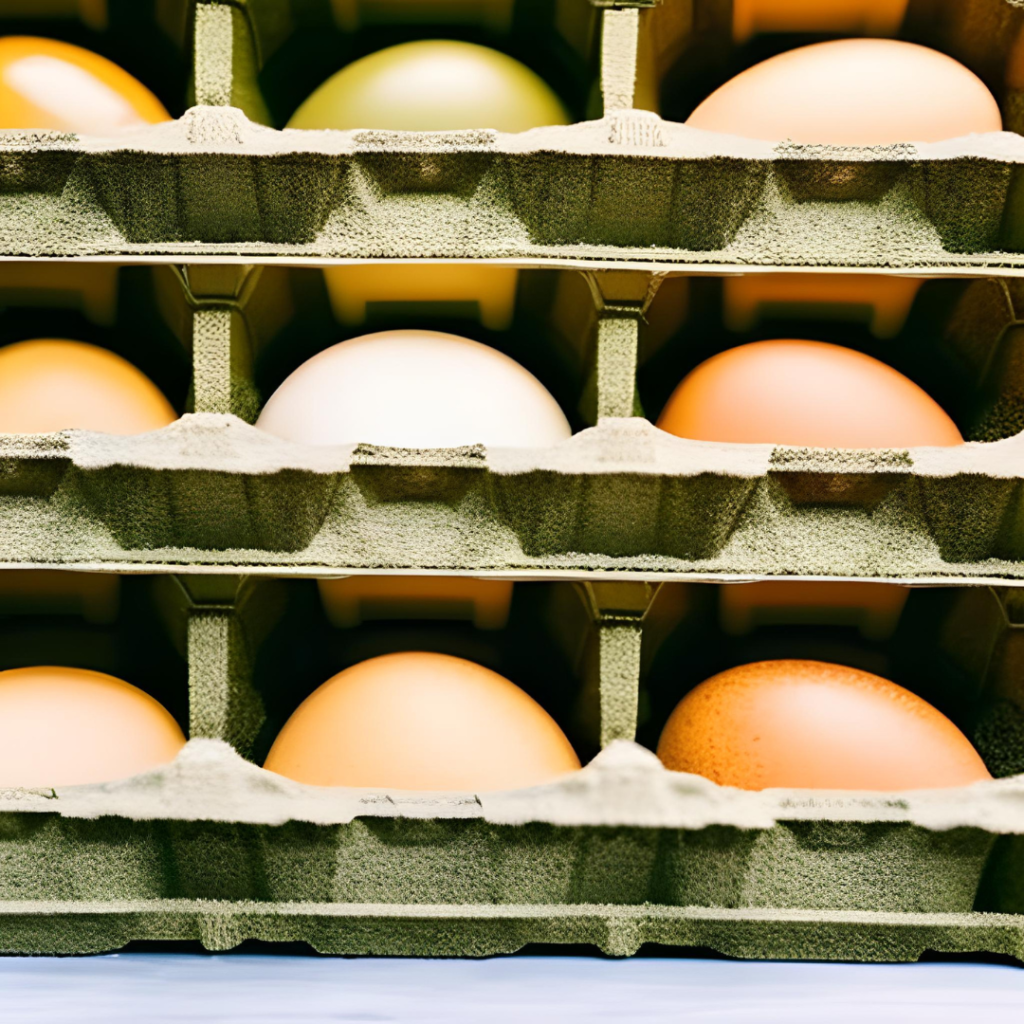Eggs are a staple nourishment expended by millions of individuals around the world. Be that as it may, the bundling utilized for eggs can have a critical natural affect, especially when it comes to squander era and carbon emanations. In later a long time, there has been a developing mindfulness and request for more feasible bundling choices, counting pulp-based egg cartons. In this web journal, we are going investigate the natural benefits of utilizing mash egg cartons, counting their part in diminishing squander and carbon impression.

Reducing Waste:
One of the key advantages of pulp egg cartons is their biodegradability and compostability. Unlike foam-based egg cartons that can persist in the environment for hundreds of years, pulp egg cartons are made from renewable materials and can break down naturally, reducing the amount of waste that ends up in landfills. Pulp egg cartons are typically made from recycled paper or agricultural waste such as wheat straw, which can be easily recycled or composted, contributing to a circular economy approach.
In addition, pulp egg cartons are designed to be stackable and compact, optimizing space during transportation and storage, which can help reduce packaging waste and lower transportation costs. This makes pulp egg cartons a more eco-friendly choice compared to foam-based cartons that take up more space and generate more waste.

Lowering Carbon Footprint:
Another significant environmental benefit of pulp egg cartons is their lower carbon footprint compared to foam-based cartons. The production of foam-based cartons involves the use of fossil fuels and energy-intensive processes, resulting in higher carbon emissions. In contrast, pulp egg cartons are made from renewable materials, such as recycled paper or agricultural waste, which require less energy and resources to produce.
Furthermore, pulp egg cartons can be produced locally, reducing the carbon emissions associated with transportation and minimizing the environmental impact of long-distance shipping. This can result in a lower overall carbon footprint for businesses or farms that choose to use pulp egg cartons as their packaging solution.
Çözüm:
As consumers and businesses increasingly prioritize sustainability, choosing pulp egg cartons for packaging eggs can make a positive impact on the environment. From reducing waste and supporting a circular economy approach to lowering carbon footprint and promoting local production, pulp egg cartons offer a more sustainable packaging option compared to foam-based cartons. By incorporating pulp egg cartons into your farm or business operations, you can contribute to waste reduction, lower carbon emissions, and support a greener future.


